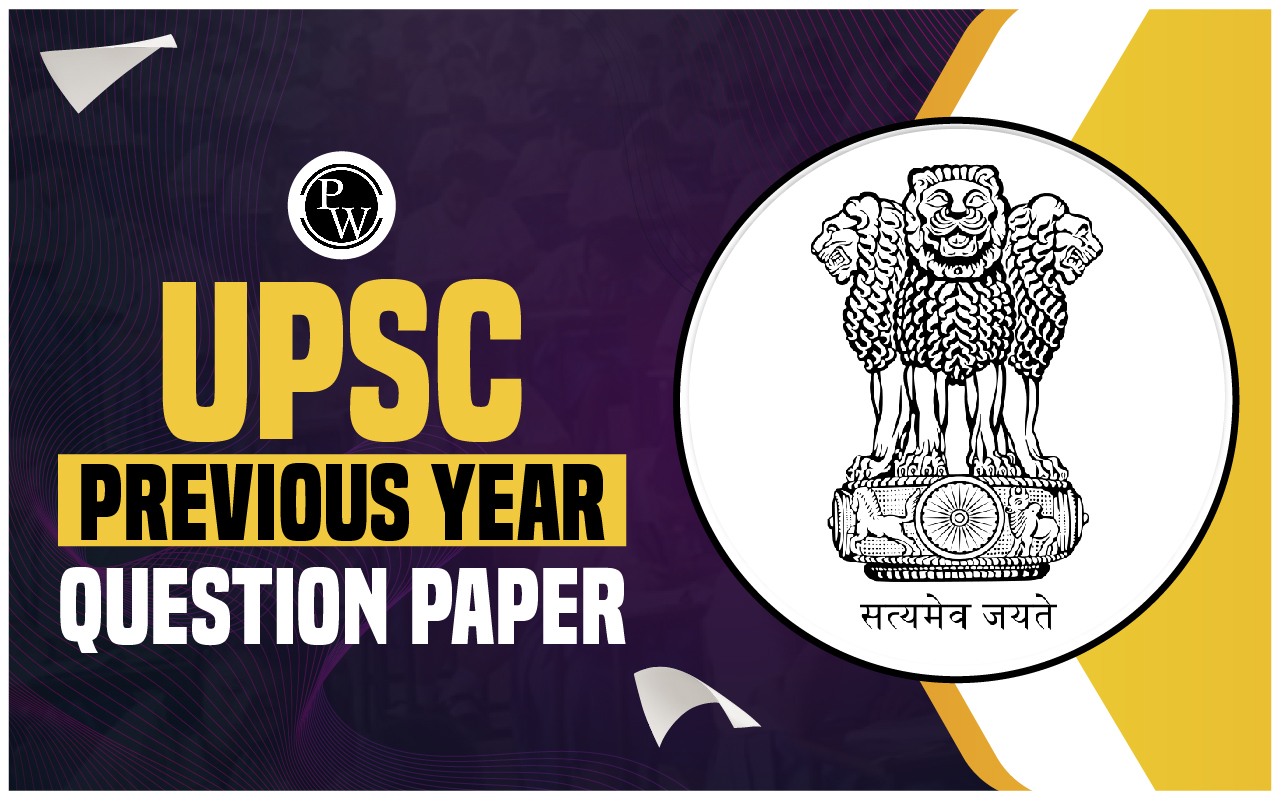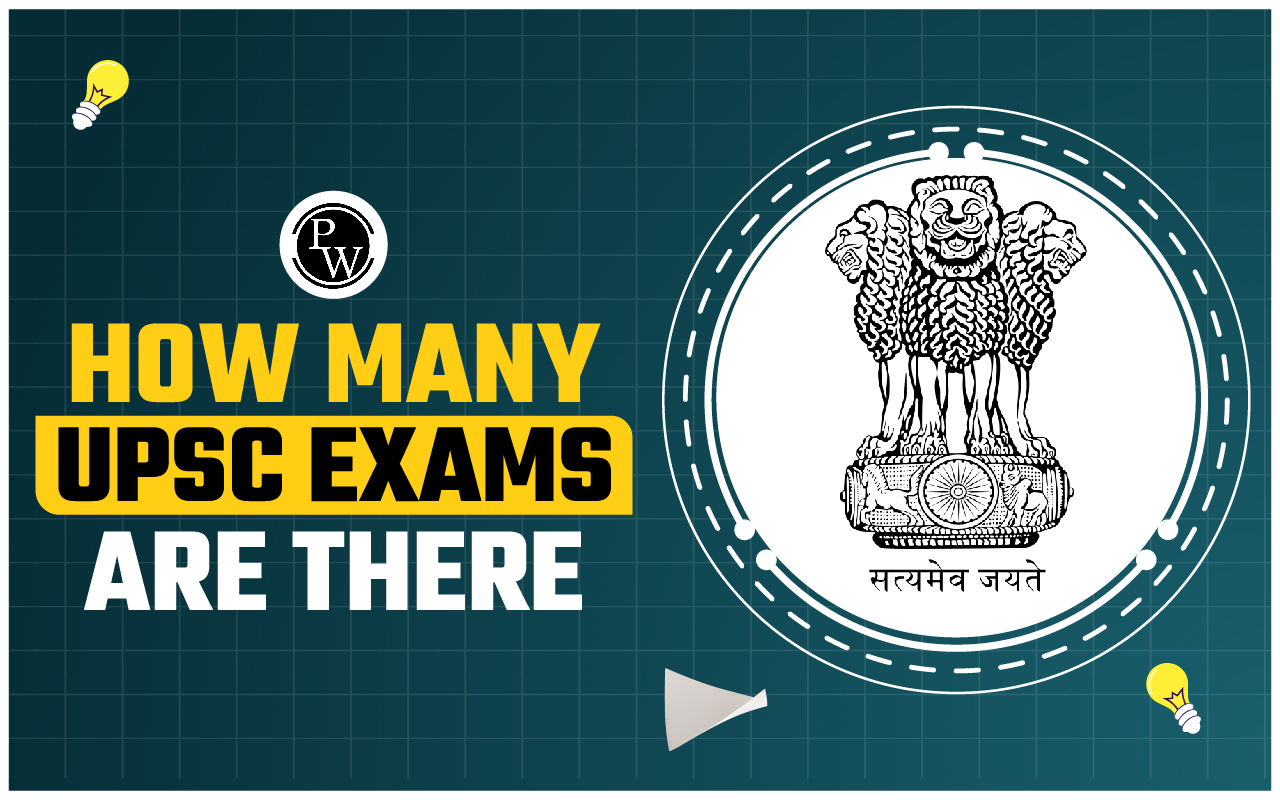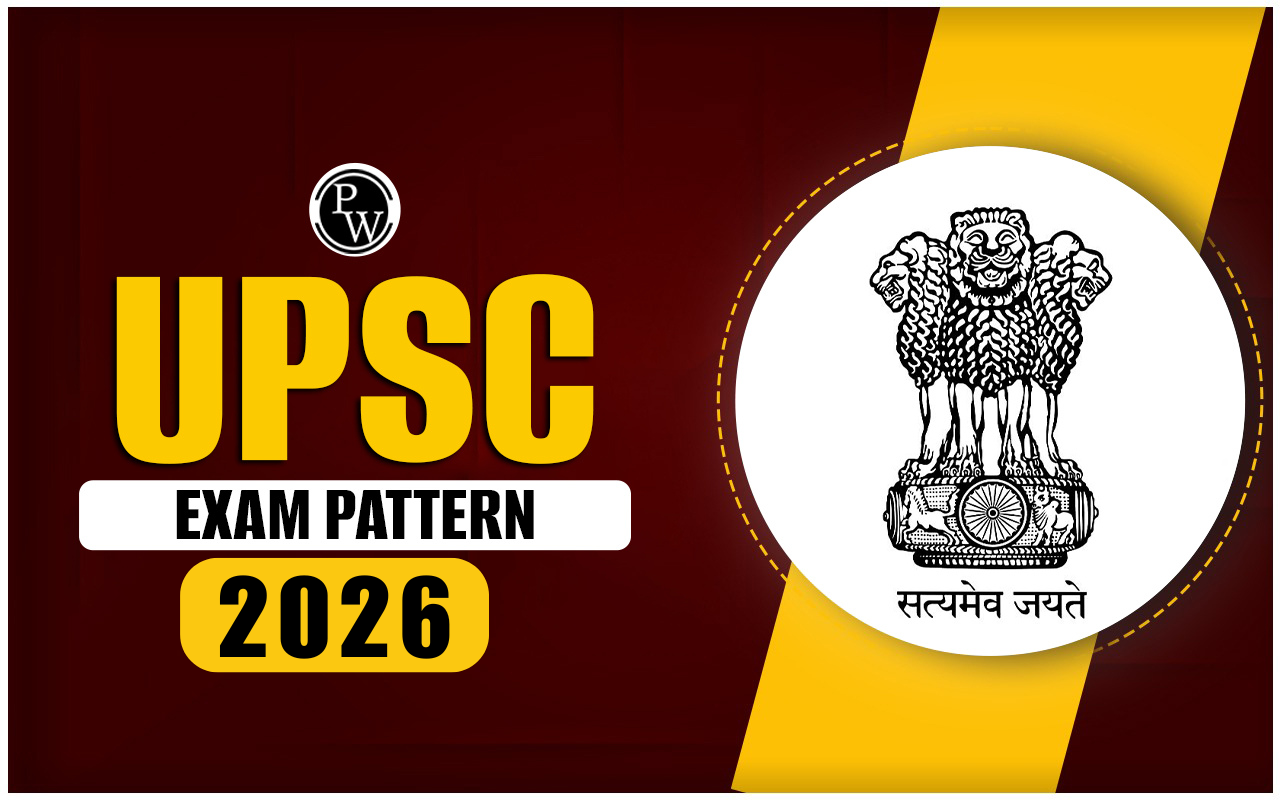
Amendments in Indian Constitution : The Indian Constitution has been amended a total of 106 times as of 2024. Each amendment highlights the adaptability of the Constitution to the changing needs of society making it a truly living document.
UPSC aspirants must be well versed with the total number of Constitution amendments and their key provisions to answer questions in prelims and mains. Keep reading for the complete list of amendments in Indian Constitution.Process of Constitutional Amendment
The Indian Constitution provides a flexible yet rigid amendment process under Article 368 . It ensures that amendments can be made when necessary while safeguarding the core values of the Constitution. Here's a brief overview of how this process works:- Introduction in Parliament: An amendment bill in India can be introduced in either House of Parliament by a minister or a private member, without prior presidential permission.
- Simple Majority: Some less critical amendments may be passed with a simple majority, requiring more than half of those present and voting (e.g., changing the name of a state). However, these amendments such amendments are not considered under Art 368 .
- Special Majority : Most amendments require a special majority, meaning that at least two-thirds of the members present and voting must approve the bill, along with more than half of the total membership of each house.
- State Approval: For certain amendments that affect federal aspects, like changing state boundaries or powers, the approval of at least 50% of state legislatures by a simple majority is necessary.
- President’s Assent : Once the bill is passed by both houses and, if required, ratified by state legislatures, it is presented to the President of India for approval.
List of Amendments in Indian Constitution
Since its adoption in 1950, there have been 106 total amendments in Indian Constitution till date. Below is the complete list of amendments in Indian Constitution along with their key provisions:| List of Amendments in Indian Constitution | ||
| Amendment | Year | Key Provision |
| First Amendment Act | 1951 | Empowered states for the advancement of backward classes; added grounds for restrictions on speech; protected land reform laws in the Ninth Schedule. |
| Second Amendment Act | 1952 | Readjusted representation in Lok Sabha (one member for >7,50,000). |
| Third Amendment Act | 1954 | Empowered Parliament to control food production and distribution in public interest. |
| Fourth Amendment Act | 1955 | Made compensation for property acquisition non-justiciable; authorized nationalization of trade. |
| Fifth Amendment Act | 1955 | Empowered the president to set time limits for state views on Central legislation. |
| Sixth Amendment Act | 1956 | Included inter-state trade taxes in Union list; restricted state powers. |
| Seventh Amendment Act | 1956 | Abolished classification of states; reorganized into 14 states and 6 union territories. |
| Eighth Amendment Act | 1960 | Extended reservation for SCs, STs, and Anglo-Indians in Lok Sabha and state assemblies until 1970. |
| Ninth Amendment Act | 1960 | Facilitated cession of Berubari Union to Pakistan. |
| Tenth Amendment Act | 1961 | Incorporated Dadra and Nagar Haveli into the Indian Union. |
| Eleventh Amendment Act | 1961 | Changed vice-president election procedure to electoral college; ensured elections cannot be challenged due to college vacancies. |
| Twelfth Amendment Act | 1962 | Incorporated Goa, Daman, and Diu into the Indian Union. |
| Thirteenth Amendment Act | 1962 | Granted state status to Nagaland with special provisions. |
| Fourteenth Amendment Act | 1962 | Incorporated Puducherry; created legislatures for several Union Territories. |
| Fifteenth Amendment Act | 1963 | Allowed high courts to issue writs outside territorial jurisdiction; increased retirement age of judges. |
| Sixteenth Amendment Act | 1963 | Empowered states to impose restrictions on rights in interest of sovereignty; included sovereignty in oaths for legislators and officials. |
| Seventeenth Amendment Act | 1964 | Prohibited acquisition of land under personal cultivation without compensation; added 44 acts to Ninth Schedule. |
| Eighteenth Amendment Act | 1966 | Clarified Parliament's power to create new states/UTs. |
| Nineteenth Amendment Act | 1966 | Abolished Election Tribunals; High Courts to hear election petitions. |
| Twentieth Amendment Act | 1966 | Validated certain district judge appointments declared void by the Supreme Court. |
| Twenty-First Amendment Act | 1967 | Included Sindhi as the 15th language in the Eighth Schedule. |
| Twenty-Second Amendment Act | 1969 | Facilitated creation of Meghalaya as an autonomous state within Assam. |
| Twenty-Third Amendment Act | 1969 | Extended reservation for SCs, STs, and Anglo-Indians until 1980. |
| Twenty-Fourth Amendment Act | 1971 | Affirmed Parliament's power to amend the Constitution, including fundamental rights. |
| Twenty-Fifth Amendment Act | 1971 | Curtailed the right to property; laws under Directive Principles cannot be challenged. |
| Twenty-Sixth Amendment Act | 1971 | Abolished privy purses and privileges of former rulers. |
| Twenty-Seventh Amendment Act | 1971 | Empowered administrators of certain UTs to promulgate ordinances; special provisions for Arunachal Pradesh and Mizoram. |
| Twenty-Eighth Amendment Act | 1972 | Abolished privileges of ICS officers; empowered Parliament to determine service conditions. |
| Twenty-Ninth Amendment Act | 1972 | Included two Kerala land reform acts in the Ninth Schedule. |
| Thirtieth Amendment Act | 1972 | Limited appeals to the Supreme Court to substantial questions of law. |
| Thirty-First Amendment Act | 1972 | Increased Lok Sabha seats from 525 to 545. |
| Thirty-Second Amendment Act | 1973 | Made provisions for Telengana aspirations in Andhra Pradesh. |
| Thirty-Third Amendment Act | 1974 | Resignation of Parliament/state legislature members can only be accepted if genuine. |
| Thirty-Fourth Amendment Act | 1974 | Included 20 more land tenure acts in the Ninth Schedule. |
| Thirty-Fifth Amendment Act | 1974 | Terminated Sikkim's protectorate status; added Tenth Schedule for its association. |
| Thirty-Sixth Amendment Act | 1975 | Made Sikkim a full-fledged state and omitted the Tenth Schedule. |
| Thirty-Seventh Amendment Act | 1975 | Provided legislative assembly and council of ministers for Arunachal Pradesh. |
| Thirty-Eighth Amendment Act | 1975 | Made emergency declarations and ordinances non-justiciable; allowed multiple emergencies. |
| Thirty-Ninth Amendment Act | 1975 | Placed disputes involving key political figures beyond judiciary; included Central acts in the Ninth Schedule. |
| Fortieth Amendment Act | 1976 | Empowered Parliament to specify maritime limits; included more laws in the Ninth Schedule. |
| Forty-First Amendment Act | 1976 | Raised retirement age for state commission members from 60 to 62. |
| Forty-Second Amendment Act | 1976 | Comprehensive amendment; added "socialist", "secular", "integrity" to Preamble; introduced Fundamental Duties; curtailed judicial review. |
| Forty-Third Amendment Act | 1977 | Restored judicial review and high court powers; limited Parliament's powers against anti-national activities. |
| Forty-Fourth Amendment Act | 1978 | Restored original term of Lok Sabha; reintroduced quorum requirements; redefined terms related to emergencies. |
| Forty-Fifth Amendment Act | 1980 | Extended reservation for SCs, STs, and Anglo-Indians in Lok Sabha until 1990. |
| Forty-Sixth Amendment Act | 1982 | Enabled states to collect sales tax more effectively; standardized tax rates. |
| Forty-Seventh Amendment Act | 1984 | Included 14 land reform acts in the Ninth Schedule. |
| Forty-Eighth Amendment Act | 1984 | Extended President's rule in Punjab beyond one year without special conditions. |
| Forty-Ninth Amendment Act | 1984 | Provided constitutional sanctity to Autonomous District Council in Tripura. |
| Fiftieth Amendment Act | 1984 | Empowered Parliament to restrict Fundamental Rights of persons in intelligence and telecommunication organizations for armed forces. |
| Fifty-First Amendment Act | 1984 | Reserved seats in Lok Sabha for STs in Meghalaya, Arunachal Pradesh, Nagaland, and Mizoram, and in Legislative Assemblies of Meghalaya and Nagaland. |
| Fifty-Second Amendment Act | 1985 | Disqualified members of Parliament and state legislatures on grounds of defection; added new Tenth Schedule. |
| Fifty-Third Amendment Act | 1986 | Made special provisions for Mizoram; fixed its Assembly strength at a minimum of 40 members. |
| Fifty-Fourth Amendment Act | 1986 | Increased salaries of Supreme Court and high court judges; enabled Parliament to change them by ordinary law. |
| Fifty-Fifth Amendment Act | 1986 | Made special provisions for Arunachal Pradesh; fixed its Assembly strength at a minimum of 30 members. |
| Fifty-Sixth Amendment Act | 1987 | Fixed strength of Goa Legislative Assembly at a minimum of 30 members. |
| Fifty-Seventh Amendment Act | 1987 | Reserved seats for STs in legislative assemblies of Arunachal Pradesh, Meghalaya, Mizoram, and Nagaland. |
| Fifty-Eighth Amendment Act | 1987 | Provided authoritative text of the Constitution in Hindi; gave Hindi version legal sanctity. |
| Fifty-Ninth Amendment Act | 1988 | Facilitated extension of President’s Rule in Punjab up to three years; allowed declaration of national emergency in Punjab due to internal disturbance. |
| Sixtieth Amendment Act | 1988 | Increased tax ceiling on professions, trades, callings, and employments from ₹250 to ₹2,500 per annum. |
| Sixty-First Amendment Act | 1989 | Reduced voting age from 21 years to 18 years for Lok Sabha and state assembly elections. |
| Sixty-Second Amendment Act | 1989 | Extended reservation for SCs, STs, and special representation for Anglo-Indians in Lok Sabha and state assemblies for ten more years (up to 2000). |
| Sixty-Third Amendment Act | 1989 | Repealed changes from the 59th Amendment regarding Punjab; aligned emergency provisions with other states. |
| Sixty-Fourth Amendment Act | 1990 | Extended President’s Rule in Punjab up to three years and six months. |
| Sixty-Fifth Amendment Act | 1990 | Established a multi-member National Commission for SCs and STs instead of a Special Officer. |
| Sixty-Sixth Amendment Act | 1990 | Included 55 more land reform Acts in the Ninth Schedule. |
| Sixty-Seventh Amendment Act | 1990 | Extended President’s Rule in Punjab up to four years. |
| Sixty-Eighth Amendment Act | 1991 | Extended President’s Rule in Punjab up to five years. |
| Sixty-Ninth Amendment Act | 1991 | Accorded special status to Delhi as National Capital Territory; provided for a 70-member legislative assembly and 7-member council of ministers. |
| Seventieth Amendment Act | 1992 | Included members of Delhi and Puducherry Legislative Assemblies in the electoral college for the President's election. |
| Seventy-First Amendment Act | 1992 | Included Konkani, Manipuri, and Nepali in the Eighth Schedule, increasing total scheduled languages to 18. |
| Seventy-Second Amendment Act | 1992 | Provided reservation for STs in the Tripura Legislative Assembly. |
| Seventy-Third Amendment Act | 1992 | Granted constitutional status to panchayati raj institutions; added Part-IX and an Eleventh Schedule with 29 functional items. |
| Seventy-Fourth Amendment Act | 1992 | Granted constitutional status to urban local bodies; added Part IX-A and a Twelfth Schedule with 18 functional items. |
| Seventy-Fifth Amendment Act | 1994 | Established rent tribunals for disputes related to rent, regulation, and control. |
| Seventy-Sixth Amendment Act | 1994 | Included Tamil Nadu Reservation Act in the Ninth Schedule to protect it from judicial review. |
| Seventy-Seventh Amendment Act | 1995 | Provided for reservation in promotions for SCs and STs, nullifying Supreme Court ruling on the same. |
| Seventy-Eighth Amendment Act | 1995 | Included 27 more land reform Acts in the Ninth Schedule, raising the total to 284. |
| Seventy-Ninth Amendment Act | 1999 | Extended reservation for SCs, STs, and special representation for Anglo-Indians for another ten years (up to 2010). |
| Eightieth Amendment Act | 2000 | Provided for alternative scheme of revenue devolution between Centre and states based on Tenth Finance Commission recommendations. |
| Eighty-First Amendment Act | 2000 | Empowered states to consider unfilled reserved vacancies as a separate class; ended 50% ceiling on backlog vacancies. |
| Eighty-Second Amendment Act | 2000 | Allowed provisions for relaxation in qualifying marks for SCs and STs in promotions. |
| Eighty-Third Amendment Act | 2000 | No reservation for SCs in panchayats in Arunachal Pradesh due to the absence of SCs. |
| Eighty-Fourth Amendment Act | 2001 | Extended ban on readjustment of seats in Lok Sabha and state assemblies for another 25 years (up to 2026); readjustment based on 1991 census. |
| Eighty-Fifth Amendment Act | 2001 | Provided for consequential seniority in promotions for SCs and STs with retrospective effect from June 1995. |
| Eighty-Sixth Amendment Act | 2002 | Made elementary education a fundamental right; revised Article 45 and added a new fundamental duty under Article 51-A. |
| Eighty-Seventh Amendment Act | 2003 | Readjusted territorial constituencies based on 2001 census population figures. |
| Eighty-Eighth Amendment Act | 2003 | Made provisions for service tax, with revenue shared by Centre and states. |
| Eighty-Ninth Amendment Act | 2003 | Bifurcated National Commission for SCs and STs into two separate bodies. |
| Ninetieth Amendment Act | 2003 | Maintained representation of STs and non-STs in Assam legislative assembly from Bodoland Territorial Areas District. |
| Ninety-First Amendment Act | 2003 | Limited size of Council of Ministers; barred defectors from public office; strengthened anti-defection law; eliminated exemption for splits. |
| Ninety-Second Amendment Act | 2003 | Included four languages (Bodo, Dogri, Mathili, Santhali) in the Eighth Schedule; total languages increased to 22. |
| Ninety-Third Amendment Act | 2005 | Empowered states to make provisions for socially and educationally backward classes in educational institutions. |
| Ninety-Fourth Amendment Act | 2006 | Freed Bihar from obligation of having a tribal welfare minister; extended to Jharkhand and Chhattisgarh. |
| Ninety-Fifth Amendment Act | 2009 | Extended reservation for SCs, STs, and special representation for Anglo-Indians for another ten years (up to 2020). |
| Ninety-Sixth Amendment Act | 2011 | Substituted "Odia" for "Oriya" in the Eighth Schedule. |
| Ninety-Seventh Amendment Act | 2011 | Gave constitutional status to co-operative societies; included new Directive Principles on co-operatives; added Part IX-B. |
| Ninety-Eighth Amendment Act | 2012 | Provided special provisions for Hyderabad-Karnataka region for equitable fund allocation and enhanced local employment opportunities. |
| Ninety-Ninth Amendment Act | 2014 | Replaced collegium system with National Judicial Appointments Commission (NJAC); declared unconstitutional in 2015, reverting to collegium system. |
| One Hundred Amendment Act | 2015 | Amended provisions relating to territories of Assam, West Bengal, Meghalaya, and Tripura due to land boundary agreements with Bangladesh. |
| 101st Amendment Act | 2016 | Introduced Goods and Services Tax (GST) regime; conferred concurrent taxing powers on Parliament and State Legislatures; established GST Council; provided compensation for revenue loss to states. |
| 102nd Amendment Act | 2018 | Conferred constitutional status on National Commission for Backward Classes; empowered President to specify backward classes. |
| 103rd Amendment Act | 2019 | Empowered states to make provisions for advancement of economically weaker sections; allowed up to 10% reservation in educational institutions and government jobs for such sections. |
| 104rth Amendment Act | 2020 | Ceased reservation for Anglo-Indians in Lok Sabha and State Assemblies; extended SC/ST reservations for 10 more years. |
| 105th Amendment Act | 2021 | Restored state powers to identify Socially and Educationally Backward Classes (SEBCs). |
| 106th Amendment Act | 2023 | Reserved one-third of all seats for women in Lok Sabha and state legislative assemblies, and the Legislative Assembly of the National Capital Territory of Delhi for a period of 15 years. |
Important Amendments in Indian Constitution PDF
A few constitutional amendments are more important from the UPSC CSE exam perspective, which is why candidates should read them in detail. Download the PDF of important amendments in Indian Constitution below: Keeping this Constitutional Amendment PDF handy will assist you during revision for the exam. Whether it's knowing the key amendments or understanding the process behind these changes, being well-versed in this topic can give you an edge in your UPSC preparation. To understand the Indian Constitution in detail for UPSC exams, check out PW UPSC Courses . Enroll now to unlock comprehensive study materials, expert guidance, interactive sessions, and more to your goals!| UPSC Related Articles | ||
| Important Awards in India | NCERT for UPSC Exam 2025 | Impact of Social Media on UPSC |
| Election Commission of India | Padma Awards 2024 | Indus Waters Treaty |
Amendments in Indian Constitution FAQs
What is the total number of amendments in Indian Constitution till 2024?
There are a total of 106 amendments in the Indian Constitution as of 2024.
Which amendment is known as the 'Mini Constitution'?
The 42nd Amendment (1976) is often referred to as the 'Mini Constitution' due to the extensive changes it introduced.
What was the 73rd Amendment about?
The 73rd Amendment (1992) granted constitutional status to Panchayati Raj institutions, strengthening local governance.
How many amendments were made in the first decade of the Constitution?
The first decade saw a total of 12 amendments to the Indian Constitution.
What is the 100th Amendment of the Constitution of India?
The 100th Amendment (2015) made provisions related to the territories of Assam, West Bengal, Meghalaya, and Tripura, adjusting boundaries due to land boundary agreements with Bangladesh.
Talk to a counsellorHave doubts? Our support team will be happy to assist you!

Check out these Related Articles
Free Learning Resources
PW Books
Notes (Class 10-12)
PW Study Materials
Notes (Class 6-9)
Ncert Solutions
Govt Exams
Class 6th to 12th Online Courses
Govt Job Exams Courses
UPSC Coaching
Defence Exam Coaching
Gate Exam Coaching
Other Exams
Know about Physics Wallah
Physics Wallah is an Indian edtech platform that provides accessible & comprehensive learning experiences to students from Class 6th to postgraduate level. We also provide extensive NCERT solutions, sample paper, NEET, JEE Mains, BITSAT previous year papers & more such resources to students. Physics Wallah also caters to over 3.5 million registered students and over 78 lakh+ Youtube subscribers with 4.8 rating on its app.
We Stand Out because
We provide students with intensive courses with India’s qualified & experienced faculties & mentors. PW strives to make the learning experience comprehensive and accessible for students of all sections of society. We believe in empowering every single student who couldn't dream of a good career in engineering and medical field earlier.
Our Key Focus Areas
Physics Wallah's main focus is to make the learning experience as economical as possible for all students. With our affordable courses like Lakshya, Udaan and Arjuna and many others, we have been able to provide a platform for lakhs of aspirants. From providing Chemistry, Maths, Physics formula to giving e-books of eminent authors like RD Sharma, RS Aggarwal and Lakhmir Singh, PW focuses on every single student's need for preparation.
What Makes Us Different
Physics Wallah strives to develop a comprehensive pedagogical structure for students, where they get a state-of-the-art learning experience with study material and resources. Apart from catering students preparing for JEE Mains and NEET, PW also provides study material for each state board like Uttar Pradesh, Bihar, and others
Copyright © 2026 Physicswallah Limited All rights reserved.









